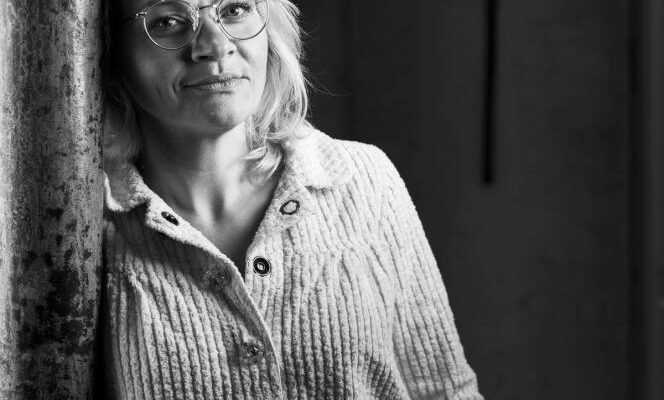“Eating is an essential and primitive act. It is, for me, the most universal and inclusive way to discover a culture, and that is why I gave up my career as a lawyer to devote myself, a few years ago, to the kitchen of my native country. I was born in Romania, I grew up in Bucharest until the age of 7, and I still have a lot of memories and ties there, even though it was hard years. We were under the communist dictatorship of Nicolae Ceauşescu [1918-1989], there was a lot of frustration, not enough food, very little fruit and veg in town. Fortunately, we had family in the countryside who sent us good vegetables when they could…
“Agriculture and animal husbandry are still healthy rustic, because Monsanto’s chemicals are too expensive. Somehow, it is poverty that saves the peasants from the grip of massive agro-industrialization. “
What we ate was very basic, but my mom always managed to put a lot of flavor into her cooking. Romania has remained a rural country, very agricultural, the countryside is woven with small farms, where everyone cultivates their plot to feed themselves, and there are farmers in all families. Agriculture and ranching are still healthily rustic, because Monsanto’s chemicals are too expensive. Somehow, it is poverty that saves the peasants from the grip of massive agro-industrialization.
In Romania, especially when I went to my family in the north of the country, I learned to smell, to cook, to make preserves so as not to throw anything away… We ate a lot of starchy foods, such as potatoes or corn, root vegetables and harvested products, very little meat. We had only one real meal a day, in the evening. Regularly, especially in autumn, it was ciulama, a dish in sauce with mushrooms (collected by us) and polenta, one of the cheapest and most substantial dishes there is. This very simple dish marked my childhood.
The Taste of M
When I was 6, my father, a visual artist, won a prize at the FIAC [Foire internationale d’art contemporain] which allowed him to come to France. When he arrived, he was impressed by the abundance and diversity of the products: he was particularly fascinated by the public bins full of multicolored packaging, when they were all gray in Romania… My mother and I were still in Bucharest, in a ghetto, and it took us a year before we could join my father in Paris.
I went to college, and the thought of devoting myself to cooking didn’t occur to me until I was pregnant six years ago. The birth of my first child made me understand that I wanted to pass on my culture, my history, and I started the Ibrik project in Paris. First a coffee, then, a year and a half later, Ibrik Kitchen, the restaurant. I learned everything on the job, being a clerk and then head of the party in my own establishment.
I worked a lot to achieve what I wanted: to discover authentic Balkan cuisine by modernizing it. This is the story of this ciulama: I removed the flour, which made the sauce heavier, added a little cream and herbs, toasted the polenta… There is nothing that makes me happy more than when my parents come. eat at a restaurant and say “rediscover the taste, but better””.
Ibrik. My Balkan cuisine, by Ecaterina Paraschiv-Poirson, Marabout, 2020, 192 pages. ibrik.fr
